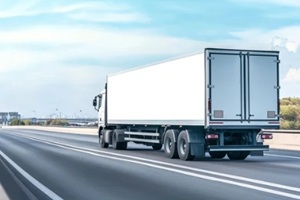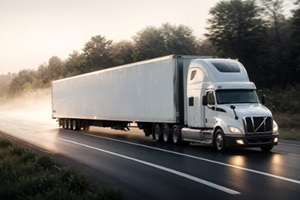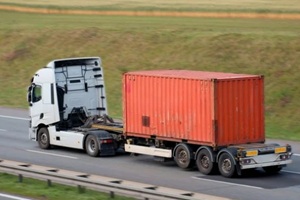
Commercial trucking insurance policies provide essential coverage for business owners. Protecting your livelihood in the event of damaged trucks, driver liabilities, or other events requires comprehensive coverage customized for your business’s specific needs.
Since not all eventualities will be covered by standard insurance policies, business owners should seek the help of a team experienced in trucking insurance exclusions in their state.
This guide describes the terms and exclusions that business owners need to know to provide comprehensive coverage for their fleet and protect their investments.
What Are Commercial Trucking Insurance Exclusions?
Your business needs commercial trucking insurance if you own or operate one or more commercial vehicles, haul freight, or transport goods and/or passengers. However, standard policies come with many exclusions, which are types of damage and loss that the policy will not pay for without additional coverage.
Insurers enforce these exclusions to minimize their risk, especially in situations that are out of everyone’s control. Common exclusions include:
- Damage or loss caused by the owner’s negligence
- Damage or loss caused by normal wear and tear
- Damage caused by lack of driver qualification
- Damage or loss caused by war or terrorism
- Damage or loss caused by market loss
Owners of commercial trucking businesses should not wait to understand these exclusions until after their claim is rejected. Consult with professionals on the relevant exclusions in your situation to avoid costly coverage gaps and keep your business safe.
Intentional Damage or Illegal Acts
Intentional damage or damage incurred while engaged in illegal acts is not covered by trucking insurance policies, even if the method of damage is a covered type. In other words, setting fire to a truck does not qualify as fire damage in the eyes of the policy.
Maintaining ethical business practices allows commercial trucking owners to prevent fraudulent claims in their organization, stop legitimate claims from being denied, and develop productive relationships with their insurers.
Wear and Tear or Mechanical Breakdown

Equipment wear and tear can cause mechanical failure on the road. However, normal wear and tear damage is usually excluded from trucking insurance policies, which are designed to cover unexpected accidents rather than everyday maintenance.
Commercial trucking owners should maintain their vehicles and save documentation showing how they were serviced and when. This documentation allows owners to demonstrate to their insurers that their claim is legitimate and not a result of neglect.
Unauthorized Drivers or Unqualified Operators
Commercial trucking owners are responsible for maintaining their drivers’ qualifications to transport their goods and operate their vehicles in their state or across state lines. Failing to maintain driver qualifications can impact liability coverage.
For example, if a driver causes an accident that would normally be covered but is not authorized to use the vehicle, the insurer has cause to deny the claim on those grounds.
Hiring drivers with the needed qualifications and maintaining their authorization allows your business to make qualified insurance claims successfully on covered events.
Cargo Exclusions and Limitations
Certain types of cargo may be excluded from coverage without policy additions. For example, hazardous materials, including chemicals and petroleum derivatives, may not be covered due to the relatively high risks involved in transporting them.
Insurers know that accidents involving these materials have a higher risk of injury and property damage, in addition to requiring specialized cleanup. Specialized cargo insurance allows commercial trucking owners to cover cargo normally excluded from standard policies.
Mitigating the financial and logistical risks of transporting hazardous cargo is essential to protecting a business’s assets. Additionally, this added protection is often mandated by law.
Contractual Liability Exclusions
Commercial trucking businesses enter many contracts to sell, lease, or manufacture goods and transports. To mitigate their risk, insurers exclude contract liabilities in many cases, such as the costs of a trucking company’s breach of contract.
However, they may cover certain types of contracts. For example, some policies accept claims in cases involving tort liability for accidents involving injury and property damage. Commercial trucking owners should always clarify their contract terms and speak with their insurance provider about coverage in their situation.
The Importance of Reviewing Policy Details with Professionals

As these exclusions imply, commercial trucking insurance policies can be complex to manage. Experienced insurance experts who understand the exclusions in the commercial trucking industry and the challenges facing these businesses can help trucking owners insure their drivers and fleets and fill coverage gaps in case of damage or loss.
In addition to customizing these policies for your business, experienced firms can periodically review them to make sure your drivers remain authorized and that your coverage matches the needs of your current operations.
Protect Your Fleet with Pro Insurance Group
At Pro Insurance Group, our team specializes in customizing commercial trucking insurance policies to make sure your business covers its specific exclusions in any relevant event.
Contact our team today to learn how we can create a personalized insurance solution to cover your exclusions and protect your business from liability.
